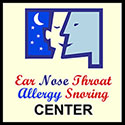Allergy Sublingual Drop Therapy
 An effective treatment option…
An effective treatment option…
Allergy drops can be an effective treatment option for people who cannot tolerate shots or have not been able to achieve satisfactory results from other allergy treatment methods.
Allergy drops are similar to allergy shots, in that the body builds up a tolerance to the allergen over time as the drops are given to the patient over three to five years. The fancy term for allergy drops is “sublingual immunotherapy.” The word “sublingual” means “under the tongue.” Drops differ from shots because allergy drops are a special kind of medicine, a tablet placed under your tongue that dissolves directly into your immune system through special cells underneath your tongue. This delivery method is a real advantage for those who cannot tolerate allergy shots.
Another distinct advantage is that those receiving allergy drops need to visit their doctor only a few times a year rather than once a month, and then can drop down to one visit every 6-12 months once symptoms are under control. Another benefit is that patients can take the drops at home, rather than visiting the doctor repeatedly for allergy shots, helping the patient to feel better faster. Allergy drops are safe enough for infants and the elderly, as well as for use in treating those with chronic conditions.
Allergy drops are used to treat a wide variety of allergies, similar to those treated with allergy shots, such as pollen, grass, trees, dust mites, animal dander, and feathers.
Although allergy drops have been available for over 60 years and are widely used in Europe, allergy drops are considered “off label” in the United States. While the FDA has approved use of the antigen in allergy shots, it has not been approved for use in allergy drops.
